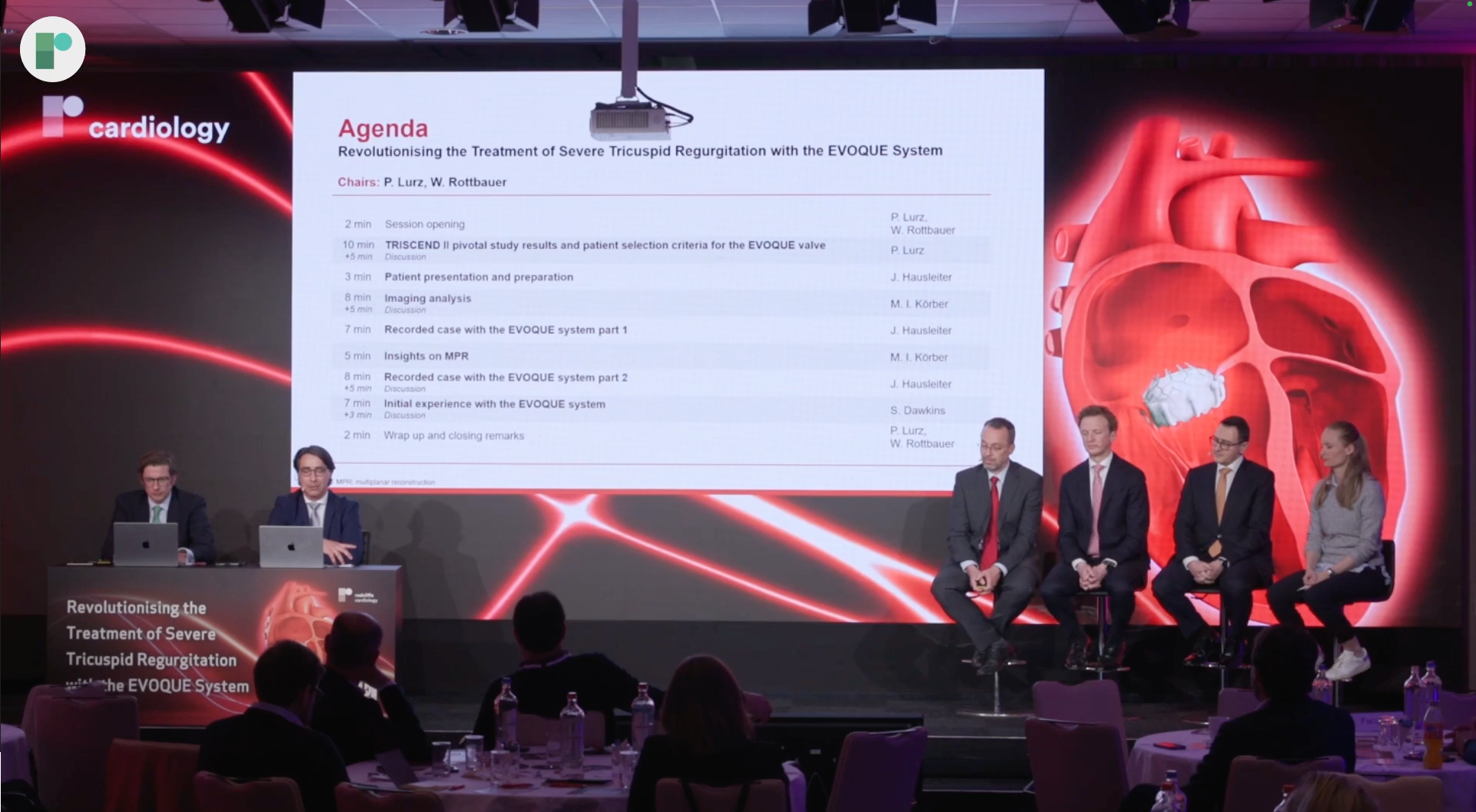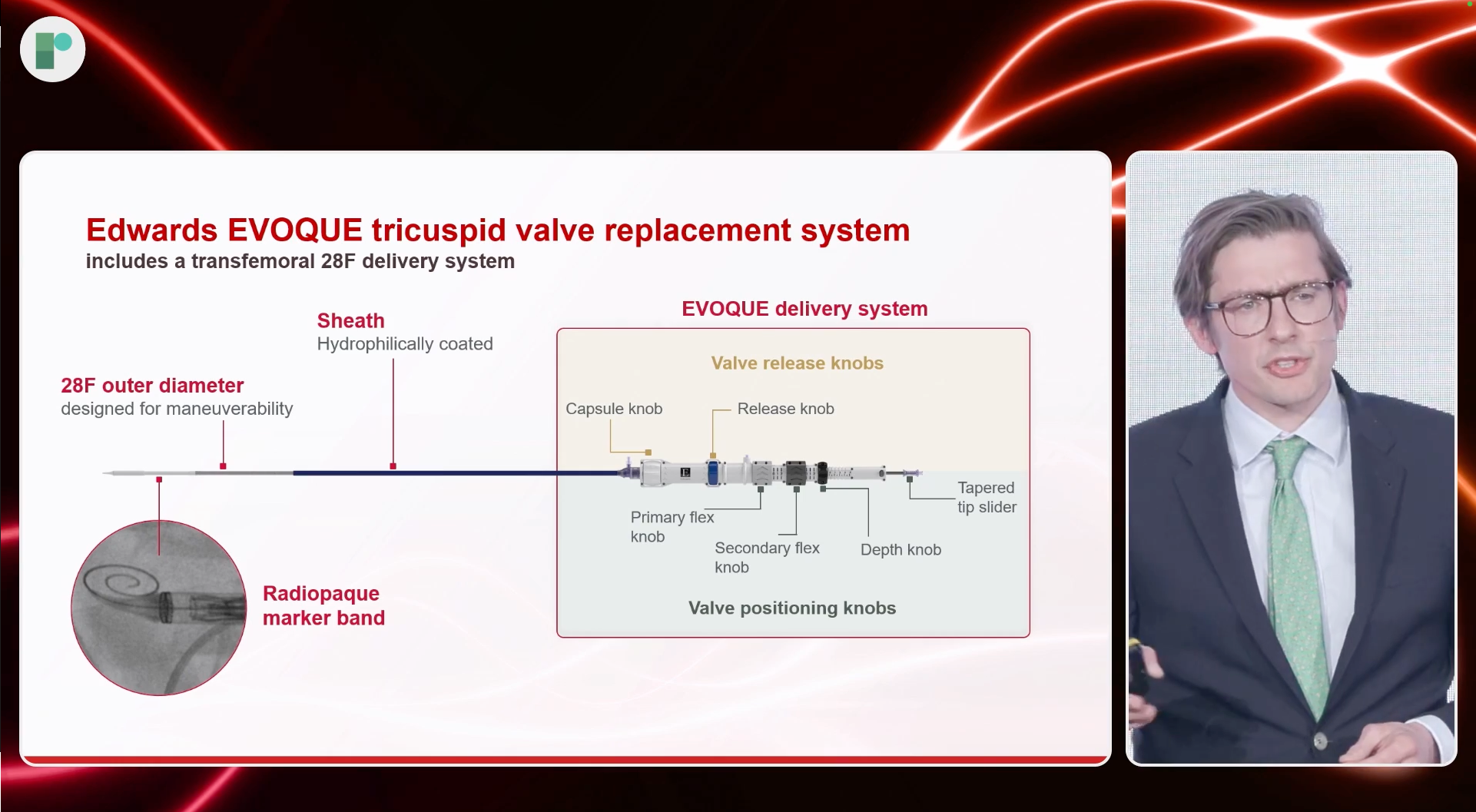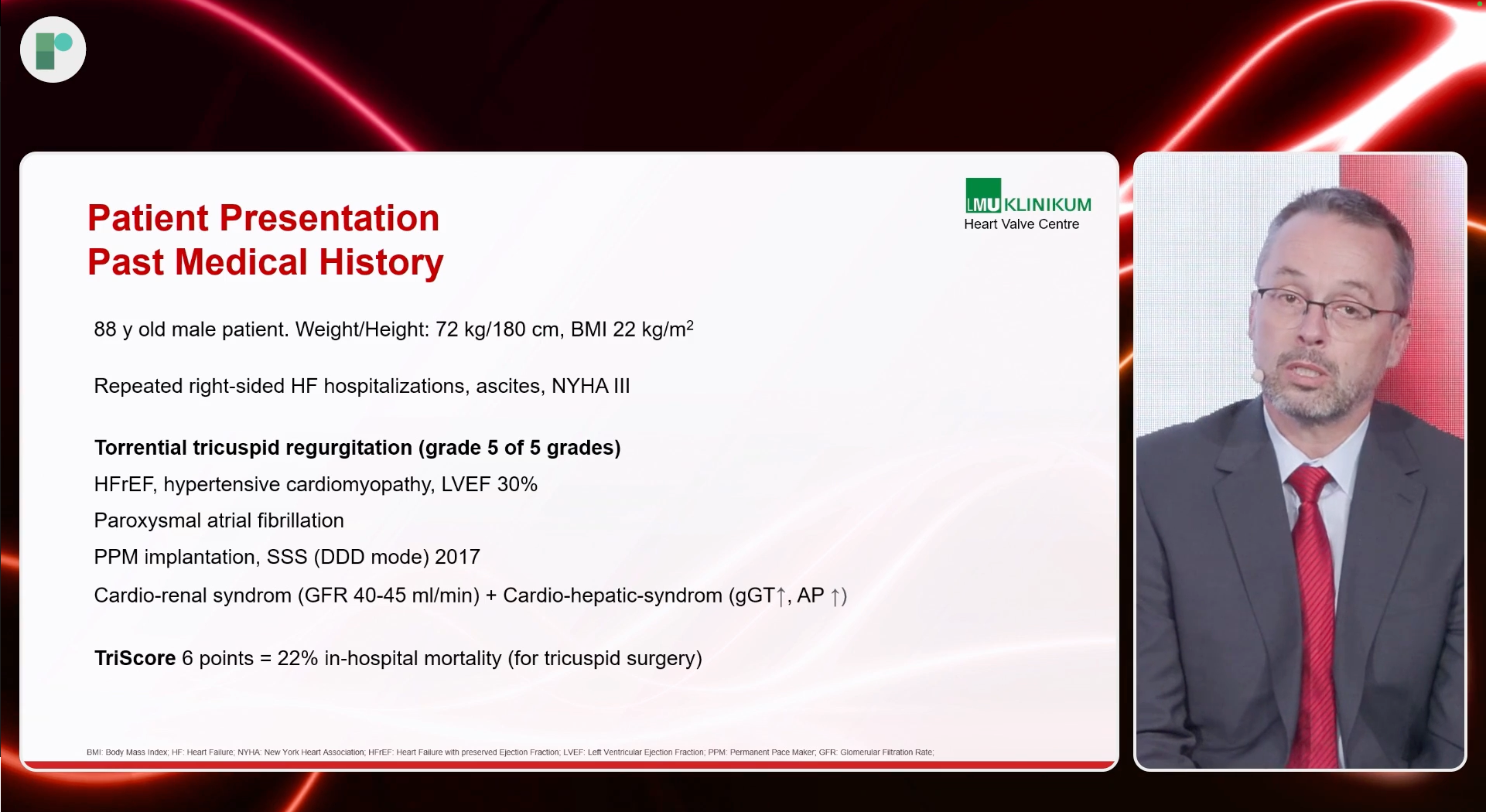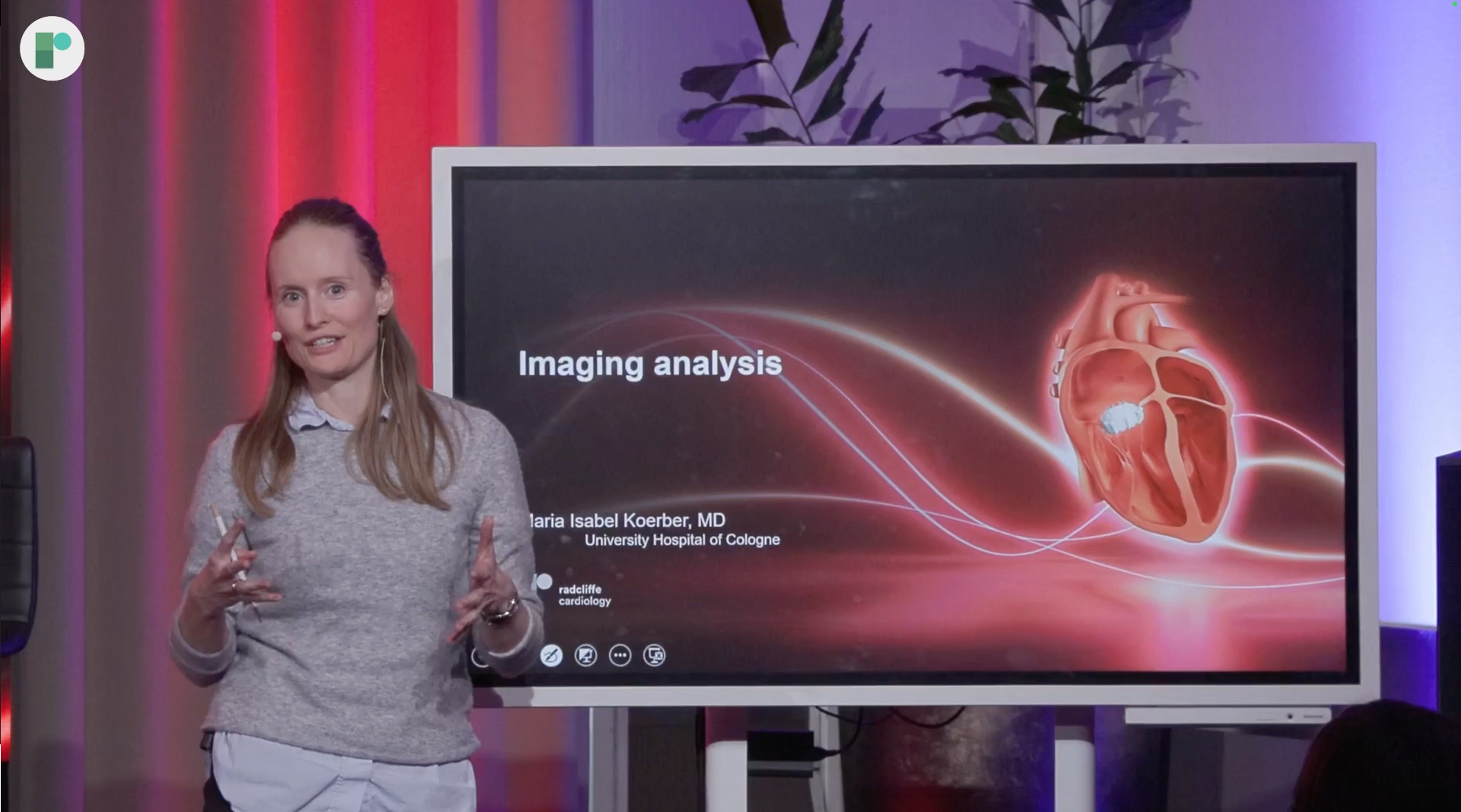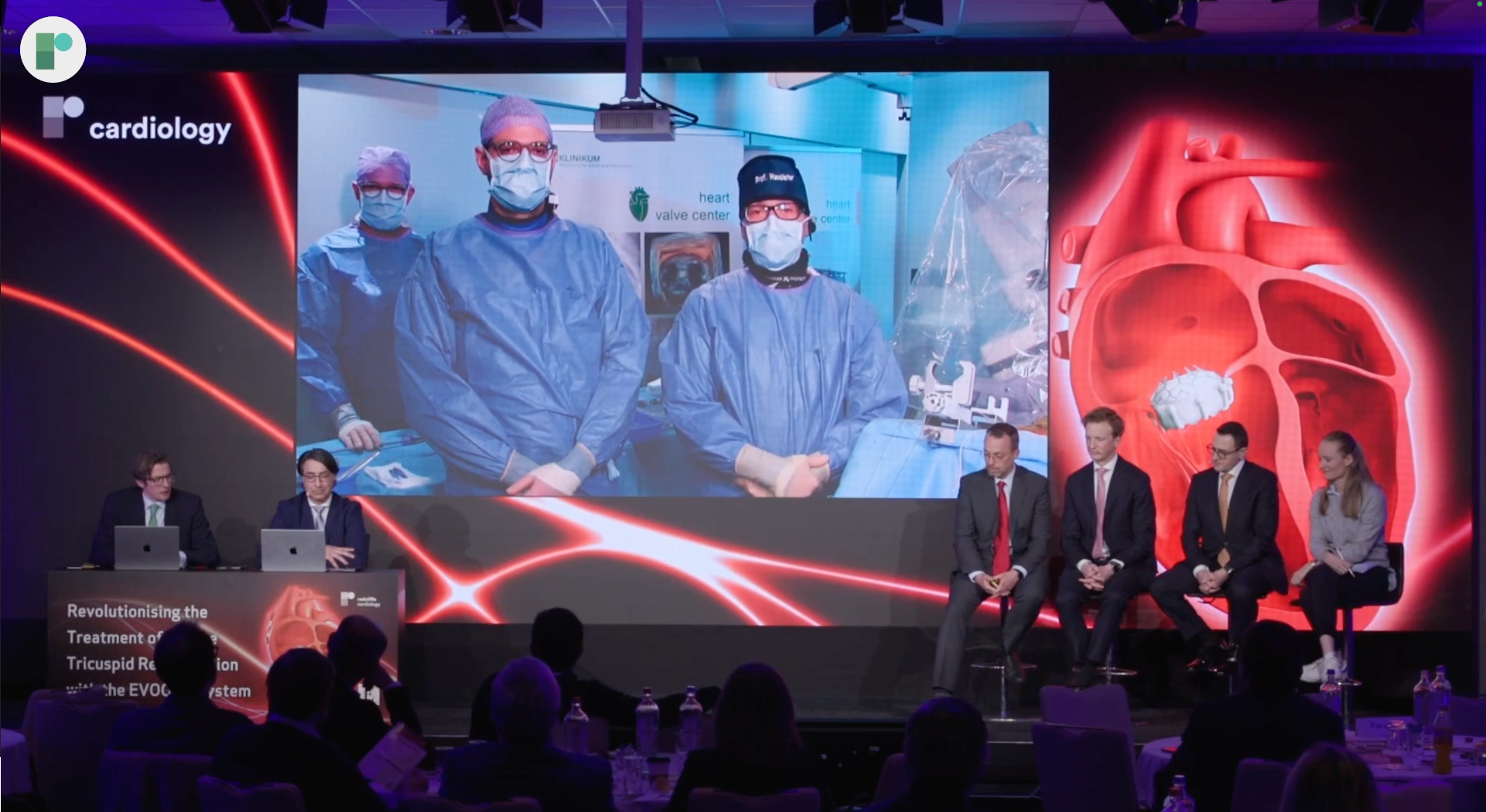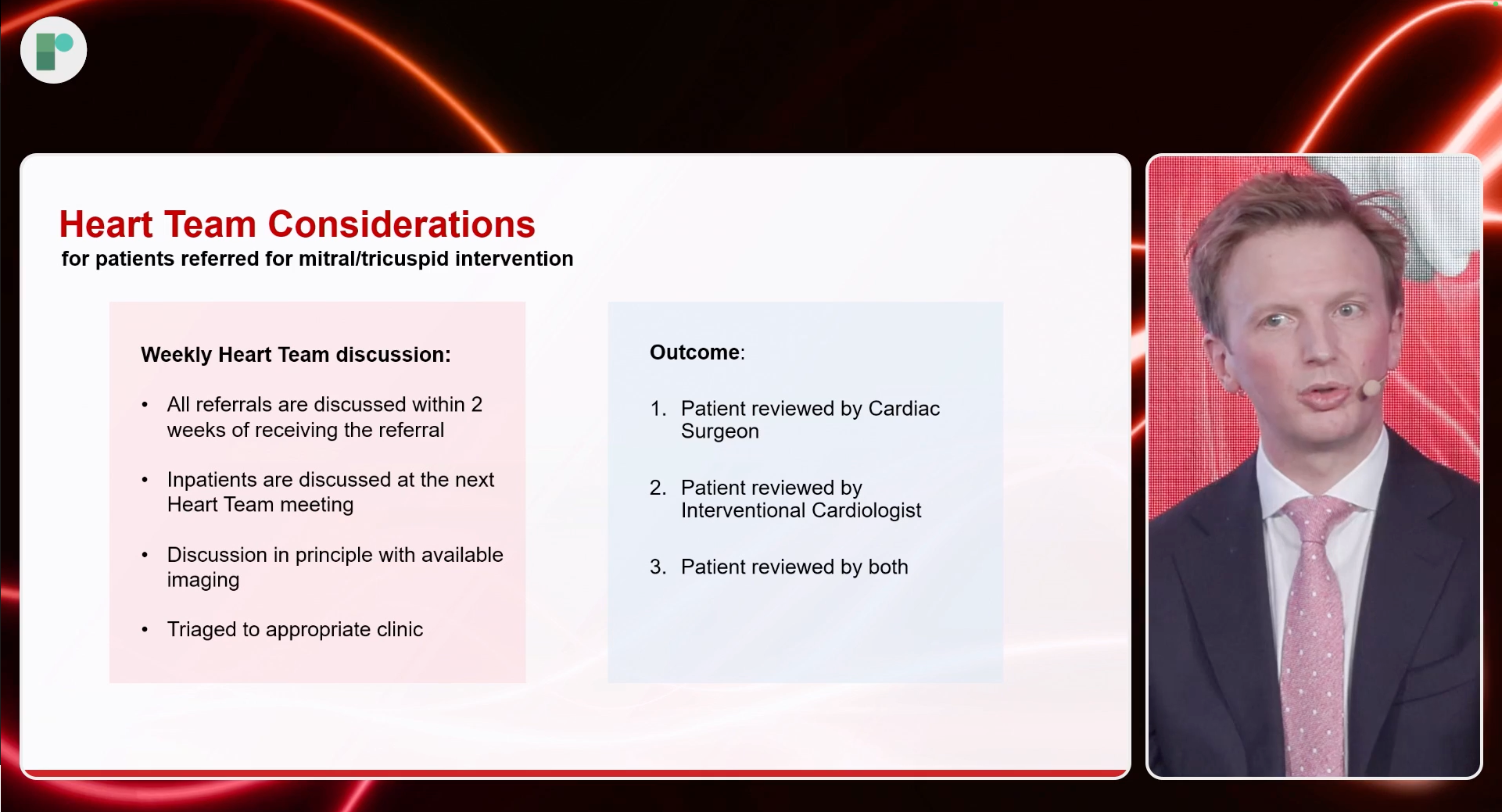Revolutionising the Treatment of Severe Tricuspid Regurgitation with the EVOQUE System
Published: 22 April 2024
-
Views:
 577
577
-
Likes:
 7
7
-
Views:
 577
577
-
Likes:
 7
7
Overview
In this programme, a leading faculty delve into the groundbreaking advancements in the treatment of severe tricuspid regurgitation with the innovative Edwards EVOQUE Tricuspid Valve Replacement System. This session features an informative "Live in a Box" transcatheter tricuspid replacement valve case by Prof Jörg Hausleiter. It provides a comprehensive analysis of the patient selection criteria, pre-procedural analysis and latest clinical evidence associated with transcatheter tricuspid valve replacement (TTVR).
Chaired by Prof Philipp Lurz (University Medical Center Mainz, Mainz, Germany) and Prof Wolfgang Rottbauer (Ulm University, Ulm, Germany), the session brings together Prof Jörg Hausleiter (Ludwig-Maximilian University, Munich, Germany), Dr Sam Dawkins (John Radcliffe Hospital, Oxford, UK), Dr Maria Körber (University of Cologne, Cologne, Germany) and Dr Ali Vazir (Royal Brompton Hospital, London, UK) to share their collective experience.
This programme is for healthcare professionals only.

More from this programme
Part 1
Introduction and welcome
Profs Lurz and Rottbauer provide a brief welcome, share the agenda and frame the educational objectives for the session.
| 1 session | |
| Introduction and welcome | Watch now |
Part 2
TRISCEND II pivotal study results and patient selection criteria for the EVOQUE valve
Prof Lurz provides a comprehensive analysis of patient selection criteria and an overview of the TRISCEND II study design, primary endpoints, and notes that the EVOQUE system demonstrated effectiveness in reducing TR at 6-month follow-up, further supported by clinically meaningful quality of life improvements.
Part 3
Patient presentation and preparation
Prof Hausleiter introduces the patient, including a review of past medical history, RHC and medication, coronary angiogram, the tricuspid valve anatomy and the coaptation gap.
Part 4
Imaging analysis
Dr Körber takes a deeper dive into the imaging analysis of the patient.
Part 5
Case featuring EVOQUE system
The faculty review the case recorded with Prof Jörg Hausleiter at Ludwig-Maximilian University, Munich, Germany, whilst Dr Körber presents her insights on MPR. The faculty share their thoughts and experience.
| 1 session | |
| Case featuring EVOQUE system | Watch now |
Part 6
Initial experience with the EVOQUE system, and wrap-up
Dr Dawkins reports his initial EVOQUE system experience from a pre-procedure, procedure and post-procedure perspective, concluding that it offers an additional treatment option for patients with severe TR. Chairs Prof Lurz and Prof Rottbauer summarise and conclude the session.
About the episode
Prof Lurz and Prof Rottbauer provide a brief welcome, share the agenda and frame the educational objectives for the session.
Faculty Biographies

Philipp Lurz
University Medical Center Mainz, Mainz, Germany
Prof Philipp Lurz is Director of the Department of Cardiology Universitätsmedizin Mainz, Germany. Prior to this, he served as Deputy Head of the Department at Heart Center Leipzig, Germany. Previously, Prof Lurz was a Clinical Research Fellow at Great Ormond Street Hospital for Children NHS Foundation Trust. He completed his education at the University of Leipzig, and is a member of the German Society of Cardiology. Philipp is widely published in leading international peer-reviewed journals.

Wolfgang Rottbauer
Prof Wolfgang Rottbauer is a specialist in internal medicine and cardiology, at the Department of Internal Medicine at the University Hospital Ulm, Germany. He received his post-doctate at Harvard Medical School.
He has worked at several leading universities including University of Regensburg, Julius Maximilian University Wuerzburg, and Columbia University in New York.
He has over 350 publications in leading international journals, with focus areas including acute coronary syndromes, heart failure and Takotsubo syndrome.






